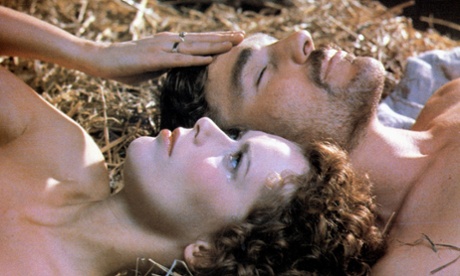
There is only one thing I loathe more than badly-written sex scenes, and that is when they are brief or omitted altogether. At least the bad ones are amusing:
When his hand brushed her nipple it tripped a switch and she came alight. He touched her belly and his hand seemed to burn through her. He lavished on her body indirect touches and bitter-sweet sensations flooded her brain.”
(The Age of Magic by Ben Okri, winner of the Bad sex in fiction award 2014)
I’ve always believed that the physical side of love is more than a bit of fun – both in life and in fiction. It is a non-verbal dance that will take you on as extraordinary a journey as you are willing to embark on. Once in a writing group I read out an (admittedly longish) description of a kiss and one of the men said, “Oh come on it’s just a kiss!” The five women in the group booed him loudly in protest.
When I started to write my novel Rembrandt’s Mirror I realised that love and sexuality were at the heart of the story of the 17th-century Dutch master and 21-year-old Hendrickje Stoffels, who came to work for him as a maid. It is the journey of Hendrickje’s sexual awakening at a time when a woman was either wife, virgin or whore. She had to find a way to become something of her own making. As for Rembrandt, he was still oppressed by grief and guilt after the death of his wife Saskia, unable or unwilling to love again.
So I set out to do love justice and avoid winning the Bad sex in fiction award. In the process I have assembled a handy list of dos and don’ts.
Don’t be coy, call a spade a spade
But don’t call a penis a “penis”. At least not if you are writing a historical novel. “Manhood” won’t do either. It’s too archaic. And don’t ridicule your leading man by calling his wang a petzel – not in a heartfelt moment anyway. Avoid calling it something obvious like cock if it is not a term he would have favoured. Show some respect and opt for something like “staff” – but only if you don’t mind sounding pompous. Or you could go for “rod”, though it’s a bit Mills and Boon. But under no circumstances let him hear you refer to it as “Tiny Tim”.
If you’re stuck for more suggestions, don’t go for online lists of funny synonyms as you will only find yourself confronted with “womb broom” or “Prince Everhard of the Netherlands”.
Do go for the etymological dictionary for epithets that feel historical: like, membrum virile, arbor vitae (from the late 18th century, for a type of evergreen shrub), wrinkly (early 15th century) or bole (early 14th century, from Old Norse bolr meaning tree trunk).
My own solution was to let Hendrickje name it and she called it: “A riddle in my hand.”
Do describe some truly disappointing sex
Nothing makes your novel feel more true to life than having some not-so-great love-making in it. Let’s face it, sex sometimes goes wrong even between the greatest of lovers. Here is a scene between Lady Chatterley and Mellors:
And when he came in to her, with an intensification of relief and consummation that was pure peace to him, still she was waiting. She felt herself a little left out. And she knew, partly it was her own fault. She willed herself into this separateness. Now perhaps she was condemned to it. She lay still, feeling his motion within her, his deep-sunk intentness, the sudden quiver of him at the springing of his seed, then the slow subsiding thrust. That thrust of the buttocks, surely it was a little ridiculous! If you were a woman, and apart in all the business, surely that thrusting of the man’s buttocks was supremely ridiculous.”
Don’t use cliches (avoid waves, oceans and the earth moving)
Here’s the problem; a writer mustn’t tell the reader that the lovers are feeling “excited”, or “ensconced in one another” or – heaven forbid – “passionate”. It works much better to approach the task obliquely by seeking inspiration (and terminology) from another field.
I wrote most of my love scenes after dancing tango, which after all has been called “a vertical expression of a horizontal desire”. The excerpt that follows is an example (embellished just a little). I confess I broke the avoid-anything-oceanic rule but I think I got away with it as I use it to describe the way she experiences sensations, rather than the sensations themselves.
His arms opened and we embraced. We stood like this for a lifetime. I held him in his maturity, as a baby and as a dying man. I sank deeper into his chest as if into Mother Earth herself. I felt his care for me as I grew younger, and younger still, until I was a newborn and then nothing at all.
“This nothing-me felt the touch of his lips. Felt them but not the way I’d felt them before, more like the ocean holds the fish that swim in it. I was each wavelet and the stillness at the bottom where no current stirs. His hands worked slowly to free my body from its clothes. I felt sleeves slide down my arms and skirts fall from my waist – the warmth from the stove enveloping my skin.
But don’t take inspiration from inappropriate activities such as DIY, gardening or watching the home shopping channel. It will only cause you to write about him threading his wrinkly through her arboretum as if he was her tailor and groundsman in one.
• Kim Devereux’s novel Rembrandt’s Mirror is published by Atlantic at £12.99 and is available from the Guardian bookshop at £10.39.

